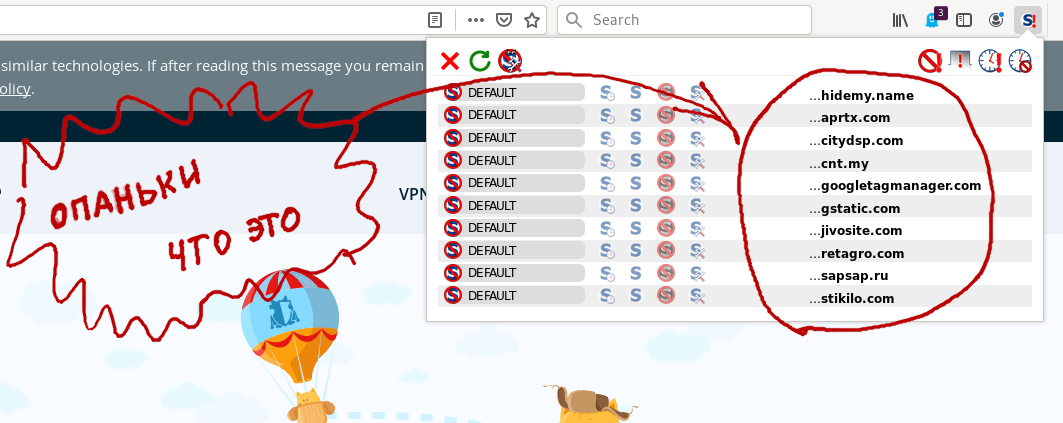Answer the question
In order to leave comments, you need to log in
Is it safer with or without a VPN?
If there is no trust, relatively speaking, neither to the Internet provider nor to the access point or to a third-party VPN service, but the trust in the VPN service is higher than in the Internet provider, is it correct to use a VPN?
As I understand it, when using a VPN, only encrypted information goes through the provider, and all information with https goes already encrypted, so all I risk is personal data entered on http sites?
Answer the question
In order to leave comments, you need to log in
You can proceed from this logic. Your Internet provider has a lot of information about you: an agreement with passport data, information in which apartment the access point is located, the mac-address of your router, and more. At the
same time, according to the law, it is obliged to save all your traffic for at least the last six months, and the usual text logging "what sites you opened, what ip-addresses you connected to and when" can be stored even longer.
Visiting https sites does prevent saving information about your activity on these sites, but does not prevent saving the very fact of visiting them, the time, the amount of information downloaded and sent. http sites, and the data sent to them, will be stored completely in the clear. Sometimes you can run into https sites, in which, due to an oversight, forms can send data in clear text via http. Fortunately, modern browsers have learned to swear at this.
If we talk about using a VPN, then some services provide the opportunity to anonymously purchase access from them using cryptocurrency, do not require registration, and do not log activity. In this case, you really choose the lesser of evils: a company that is created for data protection / privacy, does not collect your personal information, operates under foreign law and is not required to provide information about its customers to anyone.
When using a VPN, the ISP and the owner of the Wi-Fi point will not only not have access to encrypted traffic, but will not see any intelligible activity at all. Only the fact of connecting to a certain IP address (vpn server) and the flow of encrypted traffic in both directions.
Also, choose a VPN service responsibly. Study the reviews, how long the service has been on the market and whether there have been incidents with leaks, the privacy policy is the minimum. And, of course, there are no free VPNs .
If there is no trust... is it right to use a VPN
If there is no trust, relatively speaking, neither to the Internet provider nor to the access point or to a third-party VPN service, but the trust in the VPN service is higher than in the Internet provider, is it correct to use a VPN?
Well, do not forget that if you have already annoyed someone, there are still a lot of meters from your computer to the vpn server to intercept traffic =))
That's what people say right. Use your brains. It's helpful in every way.
For example: About that VPN service leaks data about its visitors to third-party operators.
I will answer briefly... (further - think for yourself)
1. If the service server (the one where you enter your data) does not provide point-to-point encryption.
OR
2. Client (your hardware: operating system, browser, etc.) "leaky": i.e. there is "leakage" of data at any level of abstraction from the data passing environment to the view/modify UI environment (and back).
Didn't find what you were looking for?
Ask your questionAsk a Question
731 491 924 answers to any question